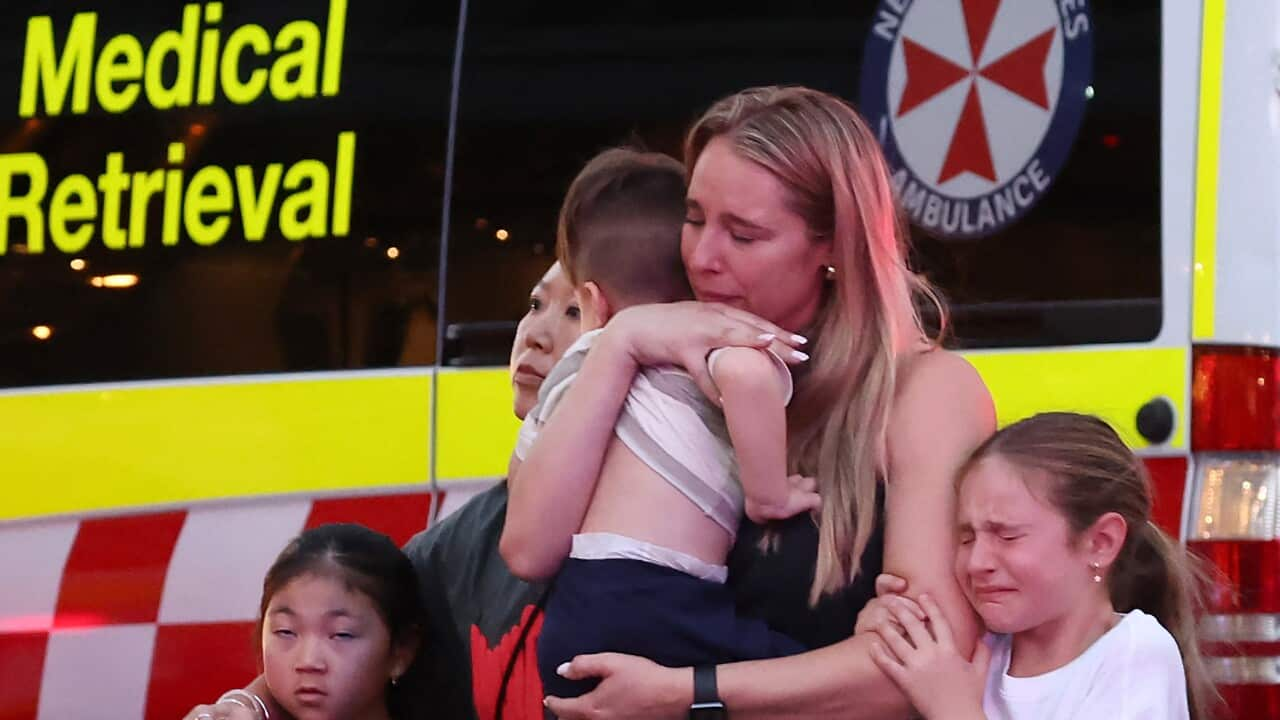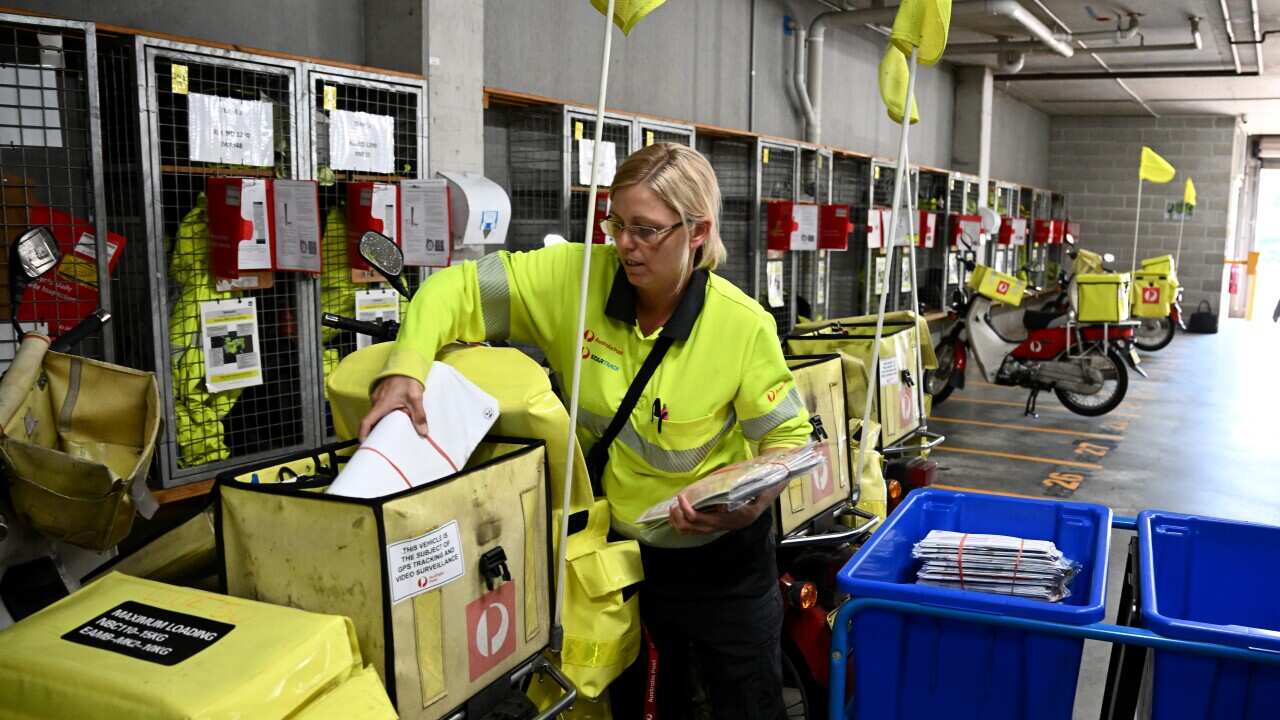NSW Police Commissioner Mick Fuller says officers will target Sydney supermarkets and larger retail outlets in a major crackdown focusing on check-in codes and face masks.
He says there's no reasonable excuse for members of the public not adhering to current health orders.
"Recent heath advice has shown that supermarkets and large retail stores are a known source of concern when it comes to spreading COVID-19," the commissioner said in a statement issued on Saturday evening.
NSW recorded 210 new local COVID-19 cases on Saturday, with two-thirds of the infections involving those under the age of 40.
The number of people who were infectious for the whole - or part of - their incubation period is 32.
Of the new infections, 73 per cent were recorded in the eight locked down local government areas - 81 cases in western Sydney and 72 cases in south-western Sydney.
New South Wales Health Minister Brad Hazzard urged younger people to remain aware of the risk of hospitalisation, noting six people in ICU are in their twenties.
"So my message to younger people is, please, understand this is a virus that you can be susceptible to," he told reporters on Saturday.
"You can end up being one of our positive cases and also end up in hospital and also end up transferring the virus to some of your relatives. Those relatives may well end up in hospital and may pass away."
Mr Hazzard said the rates of hospitalisations including younger people shows the Delta variant is "an extremely serious disease".
"It is the younger people who are actually taking up places in our intensive care units in our hospitals," he said.
"In intensive care at the moment, I think a lot of young people would be surprised to know that there are six people in their 20s in intensive care. There are four people in their 30s and there is one person in their 40s. At the moment we have 11 people in intensive care who are all 40 years old or under. That is extremely concerning."
COVID-19 deaths in current outbreak reaches 14
Mr Hazzard said the government is working to improve communication in languages other than English to ease concerns among migrant families in western and south-western Sydney about seeking hospital treatment.
A man in his 60s has died in his south-west Sydney home, marking the fourteenth death of this outbreak and the state's 70th COVID-19 fatality.
"People are worried about their income and if there is one person in the household who is the main income earner, they don't want to come forward," Mr Hazzard said.
"They don't want to tell anybody that they have actually got the virus in the household - and that is very problematic."
Of the new cases, 122 are "mystery cases" with authorities working to identify the source of infection.
Mr Hazzard said translation is proving a challenge for contact tracers, particularly with the large volume of tests.
In the last 24-hour reporting period, 105,963 tests were conducted.
"I met last week with the senior people amongst the tracer team and the case interviewers and what they were indicating was that translation is an issue for us," he said.
"We need to have translators and we do have them of course. And we have the need in some cases to revisit on multiple occasions and one interview with one person can take over a period of time up to eight hours. It is quite substantial.
Vaccine rates improve
Mr Hazzard said there has been stronger uptake of both the AstraZeneca and Pfizer vaccine in recent days.
"What we have seen is a real uptick in willingness to have the vaccine - either one - and I think particularly the opening up of the pharmacies has seen a rapid uptake in the regions and in the city."
He said a request has been made for approval for all 250 NSW pharmacies to provide AstraZeneca.
In NSW, 18.1 per cent of adults are fully vaccinated and 40.2 per cent have received one dose. In the 24 hours until 8pm on Friday, 3.81 million doses were administered by NSW Health and GPs. Nationally, 18.2 of adults have been fully vaccinated.
There are 203 COVID-19 patients receiving treatment in hospital. Of the 53 people in ICU, one person had received only their first dose of Pfizer; and four others had their first dose of AstraZeneca.
Prime Minister Scott Morrison said on Friday that for population-wide immunity that would trigger a reduction in the use of lockdowns.
Ms Berejiklian has previously set the goal of 10,000 vaccine doses as a threshold to consider more easing of restrictions.
Mr Hazzard said if people continue to get vaccinated, we could reach the 70 per cent goal in "perhaps another four months or so".
"It really depends on, I have to say, community coming forward and putting their arm out for a jab."
NSW Health staff attended protest
Mr Hazzard said he is disappointed that some NSW Health staff attended Saturday's anti-lockdown protest.
"I understand there was one paramedic and either assistant in nursing or nursing staff, and one other. Investigations are continuing.
"It has consequences both under public health orders and potentially under the crimes act. Police are continuing their investigation as well."
He urged those who attended the protest to get a COVID-19 test so that contact tracers can identify any virus transmission.
"I do think there is a whole set of circumstances where people - not just at that protest - but in other circumstances, don't necessarily tell the whole truth.
"I would say to them, please tell the whole truth. Because from the health point of view, we need to know who you have been with, where you have been so we can try and track and trace the virus."
Police prepare for 'large operation'
NSW Police Deputy Commissioner Michael Willing said fines of up to $1,000 and criminal sanctions will apply to those who attend anti-lockdown protests this weekend.
"We don't apologise for today's operation. We have made it very, very clear that people should not go into the city and engage in activity like we saw last week. In terms of the scale, it is a large operation.
"We will have over 1,000 police officers on the street. There are resources in the city, but those resources are mobile. They can be deployed anywhere across greater Sydney and to the outskirts of Sydney as well as they are required."
Eighty-five people have been charged and 300 fines issued over last Saturday's anti-lockdown protest in the Sydney CBD.
Last night, a 49-year-old man from the Central Coast was charged with criminal offences for online incitement of Saturday's protest.
Non-urgent elective surgeries on hold
Sydney recorded 170 cases on Friday, down on the previous day's pandemic-high of 239 and taking the seven-day total to 1207.
Meanwhile, the city's public hospitals have begun postponing non-urgent elective surgeries to cope with the growing outbreak.
NSW Health said stopping some elective surgeries from Monday would increase capacity for other health services in Greater Sydney.
The change will not affect theatres in Illawarra or Central Coast hospitals.
A new, walk-in AstraZeneca vaccination clinic at Bankstown Sports Club opens for its first full day on Saturday.
Operating 8am to 5pm, it's one of 13 walk-in clinics across the west and southwest. Up to four will be open each day.
Additional reporting: AAP












